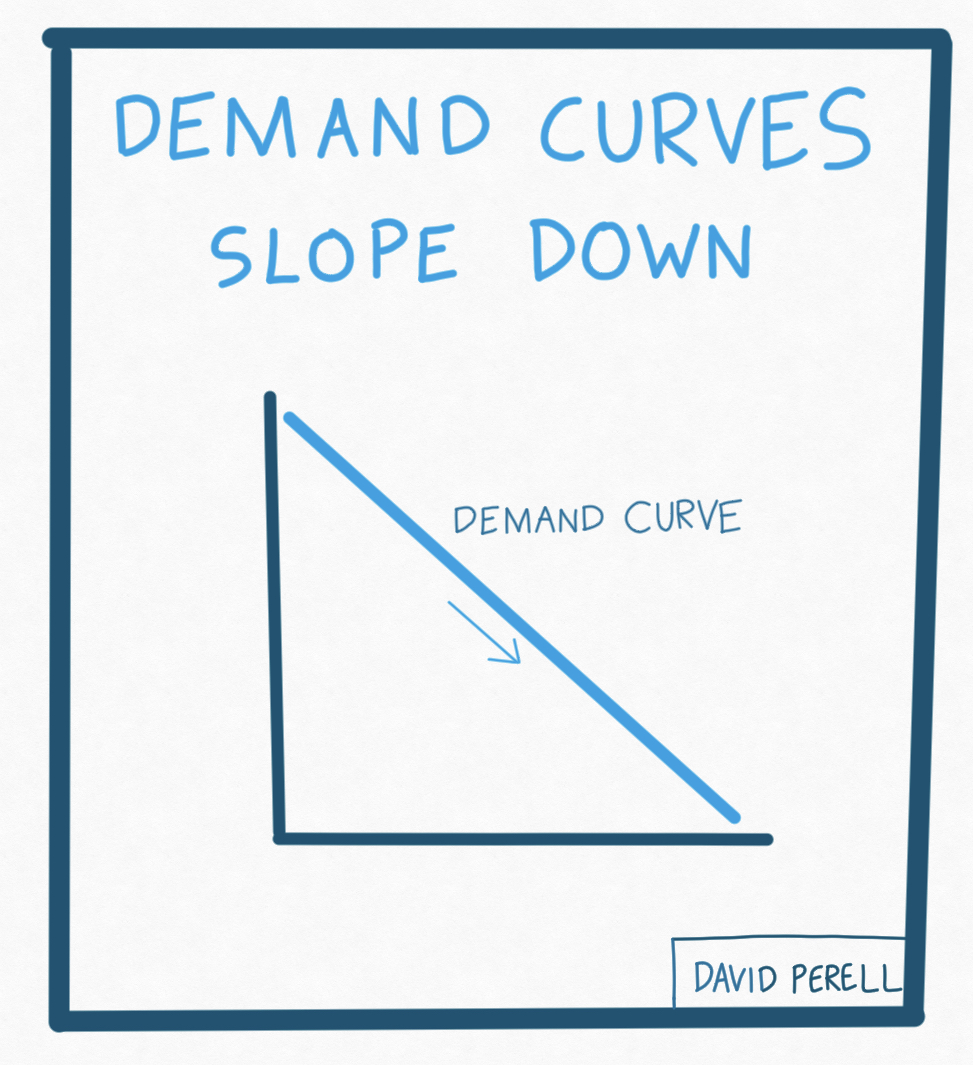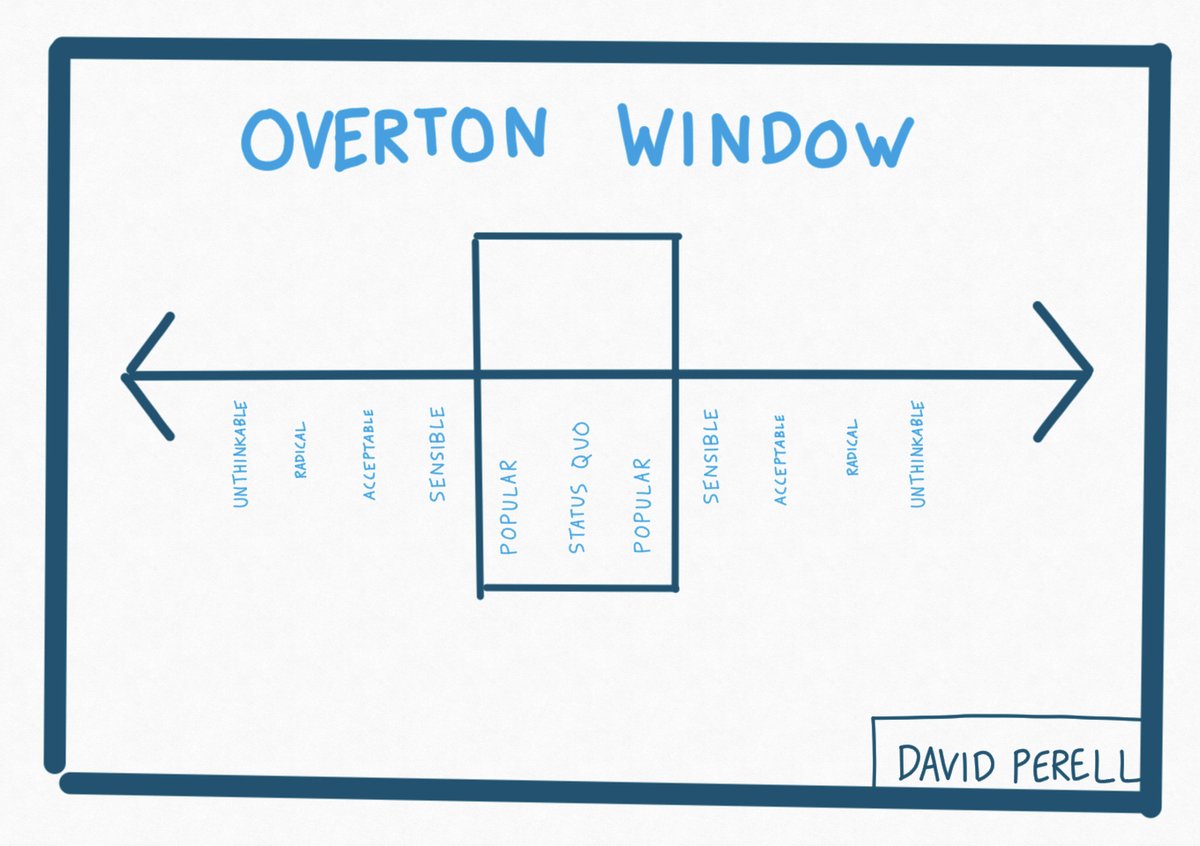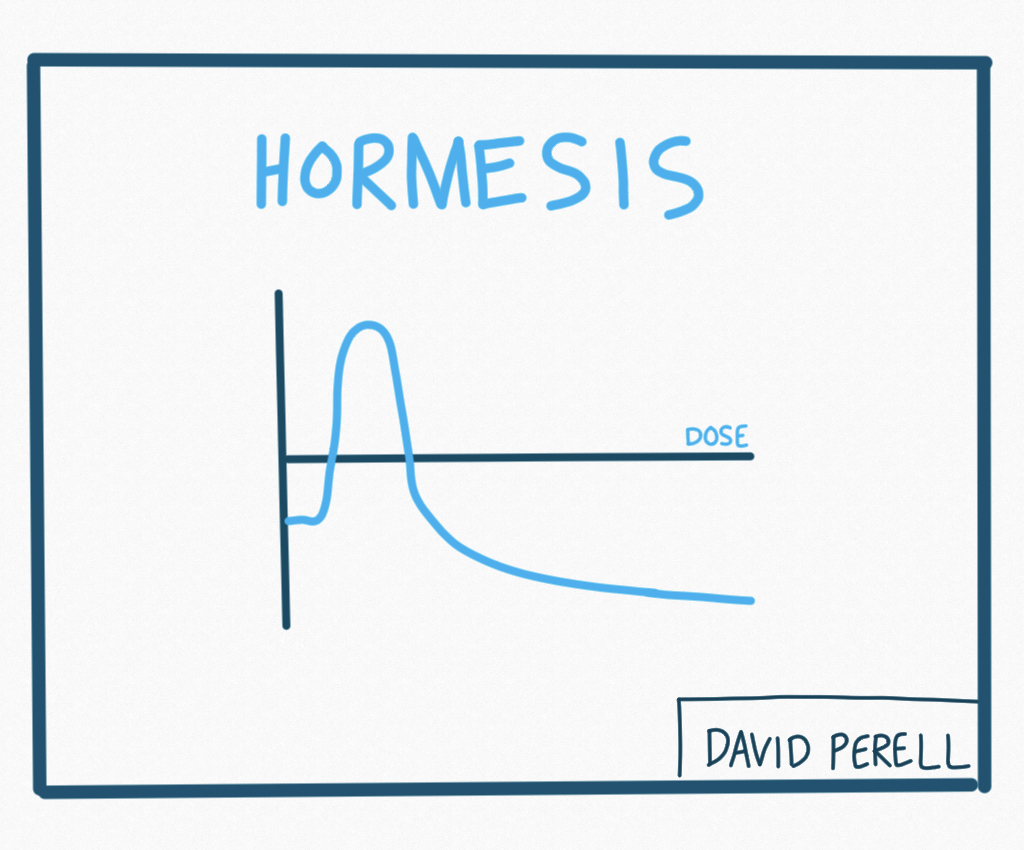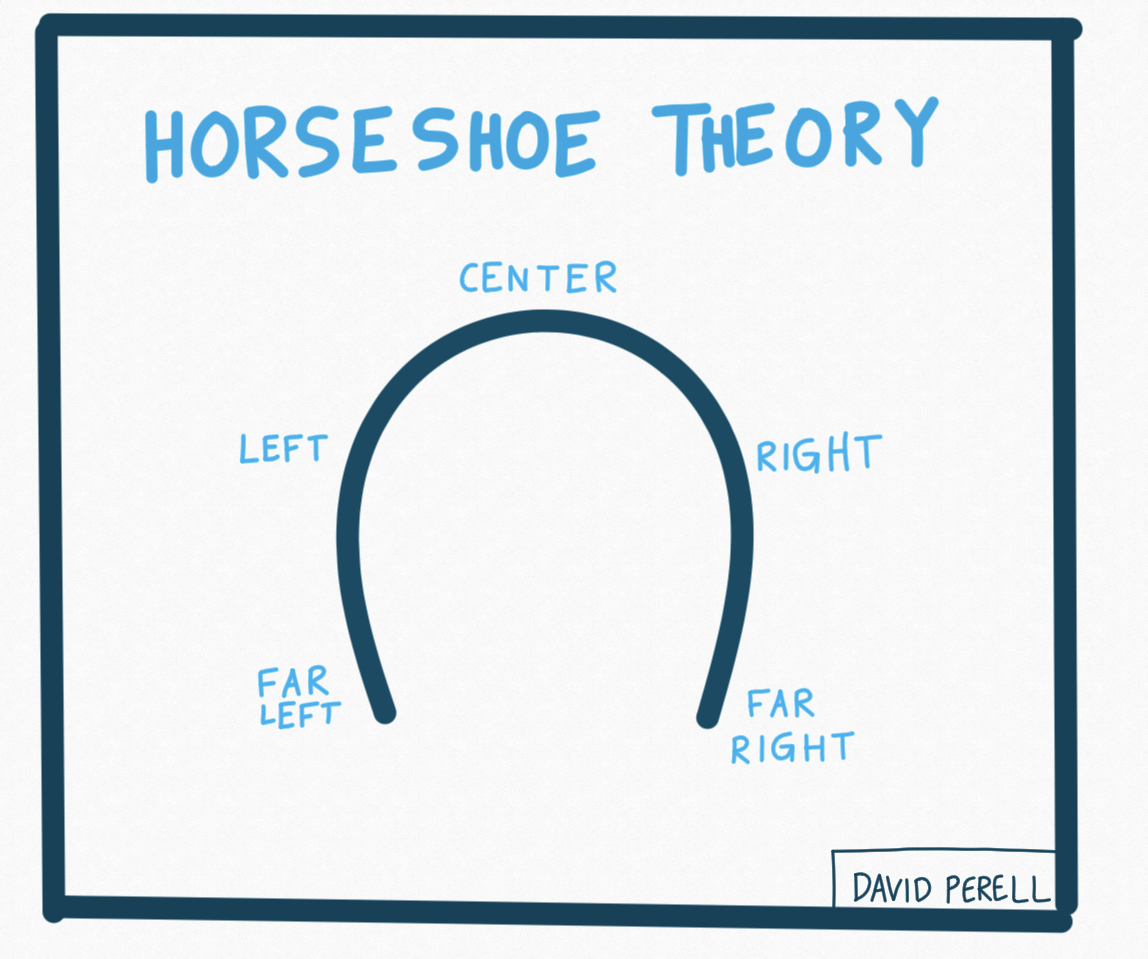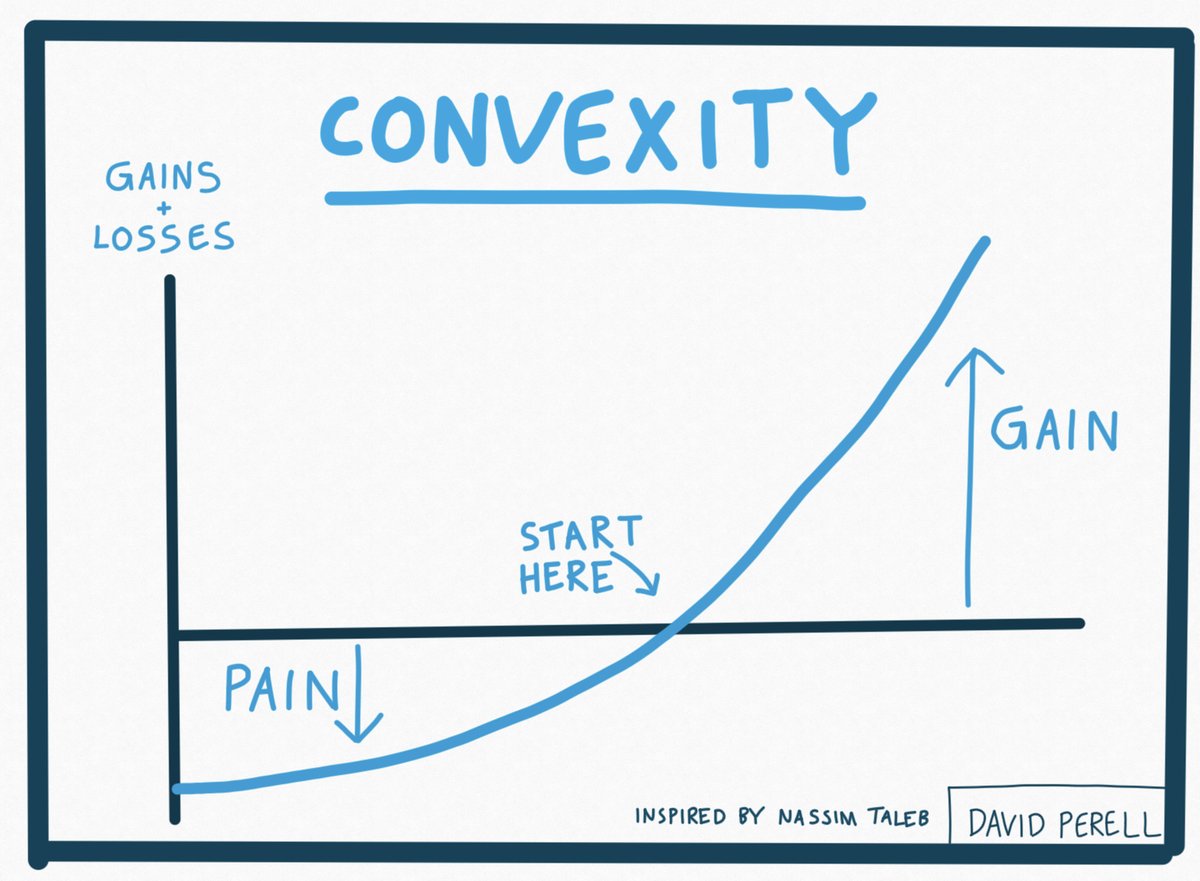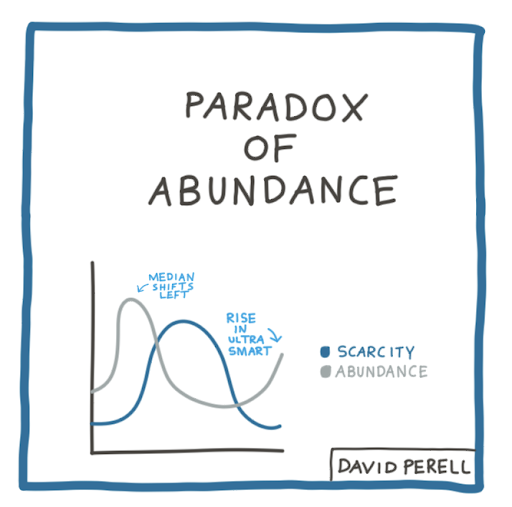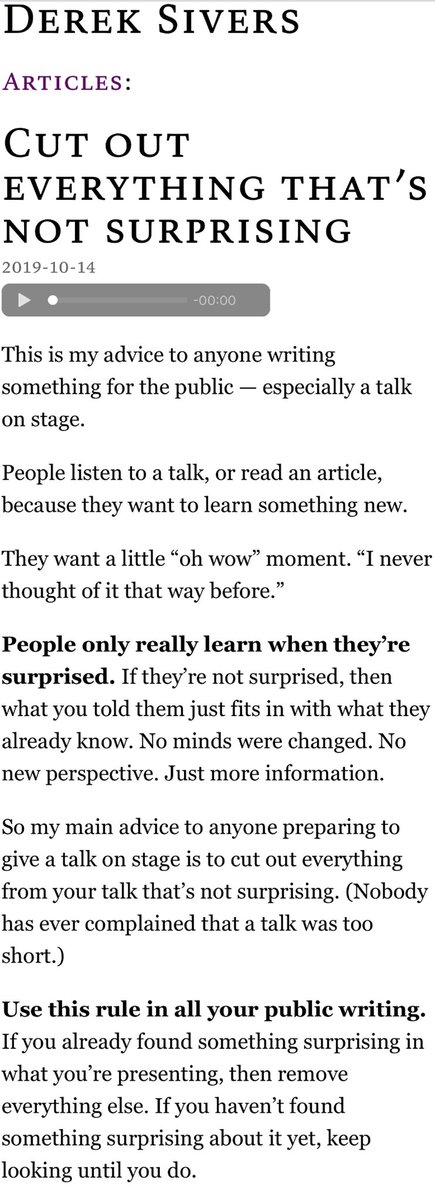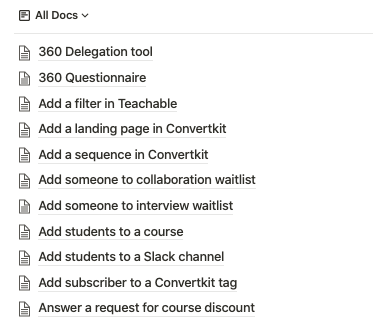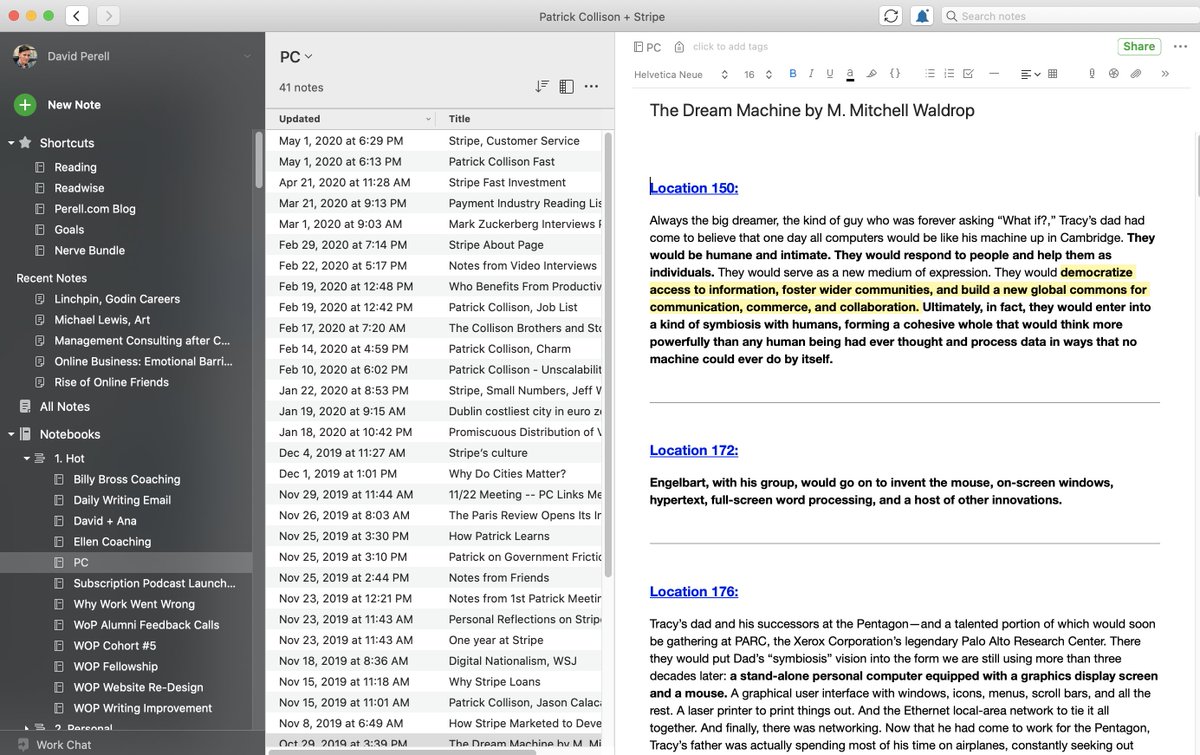Here are 50 ideas that shape my worldview.
These are my guiding principles and the light of my intellectual life. All of them will help you think better, and I hope they inspire curiosity.
Avoiding stupidity is easier than trying to be brilliant. Instead of asking, “How can I help my company?” you should ask, “What’s hurting my company the most and how can I avoid it?” Identify obvious failure points, and steer clear of them.
People often say the opposite of what they mean, especially in political language. It allows people to lie while looking like they’re telling the truth. As George Orwell famously wrote in 1984, “War is peace. Freedom is slavery. Ignorance is strength."
People lie about their true opinions and conform to socially acceptable preferences instead. In private they’ll say one thing. In public, they’ll say another.
A man one sold his soul to a demon in exchange for knowledge. At first, it seemed like a smart trade. But the man lost in the long-run. Tragically, what the man lost was more valuable than what he earned. In short, he won the battle but lost the war.
Humans are like sheep. We don’t know what we want, so we imitate each other. Instead of creating our own desires, we desire the same things as other people. The entire advertising industry built on this idea.
People who are similar are more likely to fight than people who are different. That’s why Civil Wars and family feuds create the worst conflicts. The closer two people are and the more equality between them, the greater the potential for conflict.
Don't copy others. If you work at a for-profit company, work on problems that would not otherwise be solved. If you’re at a non-profit, fix unpopular problems. Life is easier when you don’t compete. (Hint: don’t start another bottled water company).
Society is good at training talent but bad at cultivating genius. Talented people are good at hitting targets others can’t hit, but geniuses find targets others can’t see. They are opposite modes of excellence. Talent is predictable, genius is unpredictable.
Most people think of secrets as Easter eggs. They assume that if a secret is important, it’s necessarily going to be hard to find. The best ideas can come from things that are so well-known that they aren’t well-seen.
The structure of our social media feeds blinds us to history, as it causes us to live in an endless cycle of ephemeral content consumption. The structure of the Internet pulls people away from age-old wisdom.
The world always makes sense. But it can be confusing. When it is, your model of the world is wrong. So, things that don’t make sense are a learning opportunity. Big opportunities won’t make sense until it’s too late to profit from them.
Logic is the key to scientific truths, but paradoxes are the key to psychological ones. When it comes to the human condition, the deepest truths are often counter-intuitive. When you find two opposites that are both true, start exploring.
Most marketing strategies have a short window of success, as click-through rates decrease as tactics mature. For example, the first banner-ad has a click-through rate of more than 70%. Now we avoid them with ad-blockers.
Journalists often change the meaning of a sentence by replacing one word with a synonym that implies a different meaning. For example, the same person can support an estate tax but oppose a death tax — even though they are the same thing.
By reading this tweet, you are choosing not to read something else. Everything we do is like this. Doing one thing requires giving up another. Whenever you explicitly choose to do one thing, you implicitly choose not to do another thing.
Science doesn’t progress because people change their views. Rather, each new generation of scientists has different views. As old generations pass away, new ideas are accepted and the scientific consensus changes.
A group of people working on a project will fight over the most trivial ideas. They’ll ignore what’s complicated. For example, instead of approving plans for a complicated spaceship, the team would argue over the color of the astronaut's uniforms.
This idea comes from poker. Don't compete against the best. Choose your opponents carefully. You don’t need to get good at doing difficult things if you get good at avoiding difficult things. If you want to win, pick an easy table, and nail your execution.
When a measure becomes a target, it ceases to be a good measure. One hospital took too long to admit patients so a penalty was given for 4+ hour wait times. In response, ambulance drivers were asked to slow down so they could shorten wait times.
A complex system that works is invariably found to have evolved from a simple system that worked. A complex system designed from scratch never works and cannot be patched up to make it work. You have to start over with a working simple system.
Simple, clear purpose and principles give rise to complex and intelligent behavior. Complex rules and regulations give rise to simple and stupid behavior.
Work expands to fill the time available. People don’t want to look like they’re lazy, so they find extra tasks to tackle, even if they’re trivial. If you have six months to complete a project, it will take six months to complete. Set deadlines accordingly.
The world tends towards disorder. That’s why your room becomes messier and messier over time. It’s also why an engine converts only ~35% of its energy into useful work. Time moves towards increasing one direction: increasing entropy.
In the age of the Internet, when everybody has Google search and social media, differentiation is free marketing. The more specific your goal, the more opportunities you’ll create for yourself. Narrow your focus to expand your horizons.
When things interact, they often birth new, unpredictable forms. Therefore, the sum total of a system is more than its competent parts. As a system evolves, its structure can transform — just like how water becomes cold water until it turns into ice.
If there are multiple explanations for why something happened and they are equally persuasive, assume the simplest one is true. In the search for truth, remove unnecessary assumptions. Trust the lowest-complexity answer.
The opposite of Occam’s Razor. In a complex system, problems usually have more than one cause. For example, in medicine, people can have many diseases at the same time.
Be conservative in what you do, be liberal in what you accept from others. It’s a design guideline for software and a good rule for life: Hold yourself to a higher standard than you hold others to.
We are blind to what we cannot measure. Not everything that counts can be measured, and not everything that can be measured counts. But people manage what they can measure, so society repeats the same mistakes.
A self-reinforcing cycle that creates collective beliefs. An idea will gain traction once it enters the mainstream, which triggers a chain reaction, which causes lots of people to adopt it not because it’s true but because it’s popular.
Change starts away from the spotlight. Then, it moves towards the center. That’s why the most interesting ideas at a conference never come from the main stage. They come from hallway talks and trips to the bar after sunset.
The more we learn about astronomy, the less it seems that earth is special. It's a small part of the universe, and each human is a small part of the earth. We are all spinning through the solar system — nowhere near the beginning or end of time.
The Internet rewards people who are unique. If you work in a creative field, strive to be the only person who does what you do. Find your own style, then run with it. Create intellectual real estate for yourself.
Under ancient Jewish law, if a suspect was found guilty by every judge, they were deemed innocent. Too much agreement implied a systemic error in the judicial process. Beware: unanimous agreement often leads to bad decisions.
Economists assume demand is linear, but people’s behavior totally changes once an action costs money. If the inventors of the Internet had known about it, spam wouldn’t be such a problem. If sending an email cost you $0.001, there’d be way less spam.
Markets aggregate knowledge. Rising prices signal falling supply or increased demand, which incentivizes an increase in production. The opposite is true for falling prices. Prices are a signal wrapped in an incentive.
The average outcome for an event over time. They're like batting averages for life, and they work best with big sample sizes. For example, if you’re starting a business, avoid the restaurant business where margins are low and competition is high.
Large gaps between accelerating technologies and stagnating social norms create lucrative new business opportunities. But they're only open for a short time when people can capitalize on the difference between the real and perceived state of the world.
When we have a problem, our natural instinct is to add a new habit or purchase a fix. But sometimes, you can improve your life by taking things away. For example, the foods you avoid are more important than the foods you eat.
We pay too much attention to what is being said. But the medium of communication is more impactful. For example, the Internet’s impact on humanity has a bigger influence than anything that’s said on the Internet.
Countries with an abundance of natural resources such as diamonds and fossil fuels tend to have less economic growth and worse development than countries with fewer natural resources.
Reality will never match the elegance of theory. All models have inconsistencies, but some are still useful. Some maps are useful because they’re inaccurate. If you want to find an edge, look for what the map leaves out.
The key to good hospitality is to delight your guests with an unexpected gift. If you run a hotel, leave a chocolate on the bed. If you run a bakery, give your customers one extra bagel.
If you write a tweetstorm, share an extra idea.
You'll learn about ideas like:
∙ The Netflix Principle
∙ Writing in Small Chunks
∙ Building a Personal Monopoly
ageofleverage.com/course


